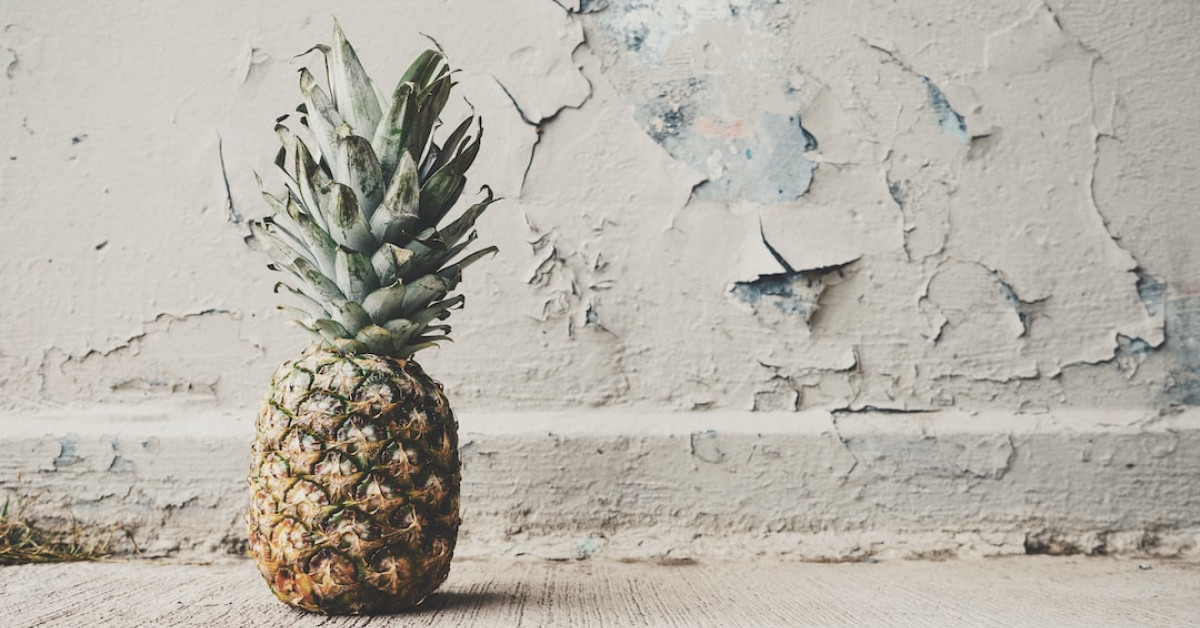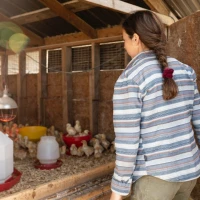Have you ever seen a pineapple and wondered if it’s just the tropical treat for humans, or can our feathered backyard friends enjoy it too? The concept of feeding chickens a variety of foods, including fruits like pineapple, is one that often stirs curiosity among poultry enthusiasts. As we embark on this exploration into the diet of chickens, you might find yourself surprised not only by the answer but also by the intriguing nuances of what our domestic birds can and cannot consume. Let’s dive into the question stirring minds and clucking tongues: Can Chickens Eat Pineapple?
Knowing what’s suitable for your chickens is paramount for their health and wellbeing. With the rise in popularity of backyard chicken farming, understanding their dietary requirements has never been more critical. Pineapple, known for its sweet and tangy flavor, may be a delicious choice for humans but is it safe for chickens? In this comprehensive guide, we’re going to explore the ins and outs of feeding pineapple to chickens, what benefits it might have, and any potential risks involved.
The Curious Case of Chickens and Pineapples
When considering whether chickens can consume pineapple, it’s essential to approach the topic with both curiosity and caution. As chicken keepers, our goal is to ensure a balanced and nutritious diet for our birds. So, let’s uncover the truth about whether this tropical fruit is a healthy addition to a chicken’s diet.
Understanding Chicken Dietary Needs
Before we delve into the specifics of pineapples, it’s important to understand the basic dietary needs of chickens. Chickens are omnivores and require a mixture of protein, carbohydrates, fats, vitamins, and minerals to maintain their health. Their diet typically consists of:
- Grains and seeds
- Vegetables and leafy greens
- Fruits (in moderation)
- Protein sources such as insects and worms
Now, where does the pineapple fit within this diet?
Pineapple: Nutritional Profile and Benefits for Chickens
Pineapple offers a host of nutrients that can potentially benefit chickens. This tropical fruit is rich in:
- Vitamins: Particularly Vitamin C which boosts immune health.
- Minerals: Including manganese, necessary for strong eggshells and bone structure.
- Natural Sugars: Which provide a quick energy source.
- Fiber: Aids in healthy digestion.
How to Safely Introduce Pineapple to Your Chickens
When introducing new foods to your chickens, moderation is key. Here’s a safe way to offer pineapple:
- Offer small portions as a treat.
- Remove the tough, inedible skin and core.
- Start with fresh, ripe pineapple to ensure it’s not too acidic.
The Do’s and Don’ts of Feeding Pineapple to Chickens
Do’s:
- Provide fresh pineapple in small amounts.
- Supplement their diet with a high-quality chicken feed.
- Monitor your chickens for any adverse reactions when trying new foods.
Don’ts:
- Don’t replace their primary food source with pineapple.
- Avoid canned or processed pineapple due to added sugars and preservatives.
- Never offer pineapples that are unripe or overly acidic.
The Hidden Risks of Pineapple for Chickens
While pineapple can be a healthy treat, it’s not without its risks. The acidity and sugar content of the fruit can cause digestive issues if consumed in excess. Moreover, the tough skin and core can be a choking hazard or cause impaction in the digestive tract if not removed.
Is Pineapple Too Acidic for Chickens?
Pineapple’s acidity is a double-edged sword – while it can aid in digestion, too much can lead to irritation or even damage to the chickens’ digestive system. It’s crucial to monitor the amount of pineapple your chickens consume to prevent any health complications.
The Impact of Pineapple Sugar Content on Chickens
The sugars in pineapple offer energy, but excessive amounts can lead to weight gain and potentially attract pests like rodents or insects to the feeding area. Make sure treats like pineapple don’t exceed 10% of your chickens’ total diet.
Feeding Frenzy: The Right Way to Offer Pineapple
To safely incorporate pineapple into your chickens’ diet, it should be done correctly. Here’s a step-by-step approach:
- Cut the Pineapple: Create small, manageable pieces for the chickens to peck at.
- Offer Pineapple Sparingly: Treats should be exciting but not overwhelm their regular feed.
- Observation: Watch how the chickens react to ensure they enjoy and can digest the pineapple without issue.
Determining the Ideal Portion Size
The right portion size depends on the size and breed of your chickens. As a general rule, a couple of square inches of pineapple per chicken is sufficient as an occasional treat.
Chicken Preferences and Pineapple
Just as with humans, chickens have their taste preferences. Some may enjoy pineapple, while others may leave it untouched. Introduce it slowly and see how your flock responds.
The Long-Term Benefits of Pineapple in a Chicken’s Diet
Adding fruits like pineapple to a chicken’s diet can contribute to their overall health when offered in the right quantities. The vitamins and minerals in pineapple can promote a strong immune system and support bone health, leading to happier and more productive chickens.
Vitamins and Minerals in Pineapple That Support Poultry Health
- Vitamin C: Antioxidant properties support the immune system.
- Manganese: Essential for bone development and eggshell strength.
- Bromelain: An enzyme in pineapple that may aid in digestion.
The Role of Fiber in a Chicken’s Diet
Fiber in pineapple can help regulate a chicken’s digestive system, ensuring food is processed efficiently, and nutrients are absorbed effectively.
Can Pineapple Affect Egg Production?
Pineapple is not known to directly affect egg production. However, a balanced diet that includes occasional treats like pineapple can contribute to overall health, which in turn may reflect positively in the quality and consistency of egg production.
Frequently Asked Questions: Chickens and Pineapple
As we conclude our detailed exploration of whether chickens can eat pineapple, let’s address some common questions that arise on this topic.
Can Chickens Eat Pineapple Leaves or Skin?
No, chickens should not eat pineapple leaves or skin as they are tough and can cause digestive blockages or choking hazards.
Can Baby Chicks Have Pineapple?
It’s best to avoid giving pineapple to baby chicks. Their digestive systems are not fully developed, and the high acidity could be harmful.
How Often Can Chickens Have Pineapple?
Pineapple should be an occasional treat, not a dietary staple. Offering it once a week or less is a good guideline.
Conclusion: A Sweet and Tangy Addition With Caution
To sum up, can chickens eat pineapple? Yes, they can—but it should be given as a treat and not replace their main diet. By understanding the nutritional benefits and potential hazards of pineapple, you can responsibly diversify your chickens’ diet and enjoy watching them experience new flavors. Remember to always prioritize the health of your flock with informed dietary choices that will keep them clucking, pecking, and thriving for years to come.










